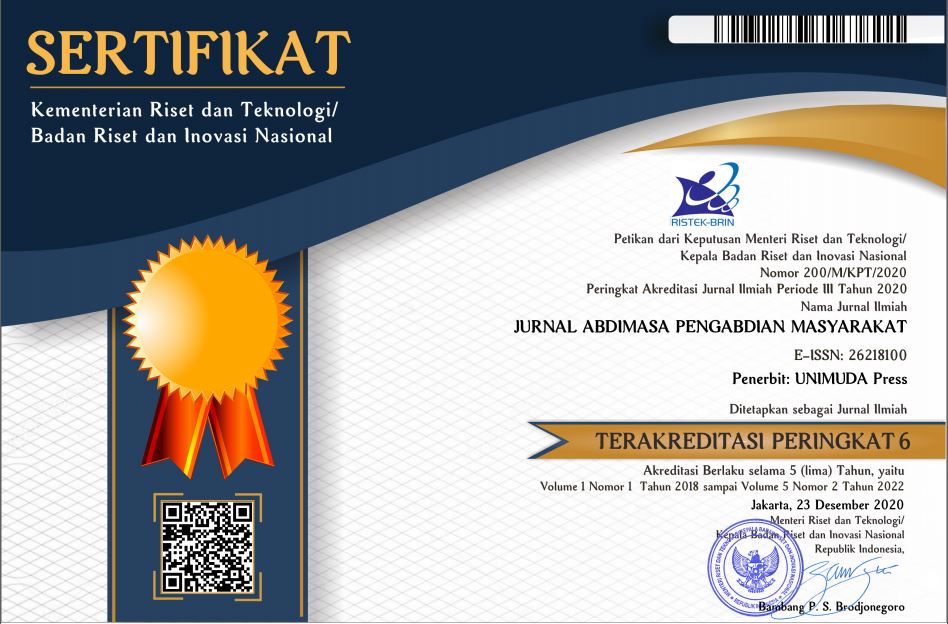Pemberdayaan Masyarakat Papua Melalui Program Ekopesantren Berbasis Pelestarian Lingkungan di Panti Asuhan Muhammadiyah Malasom
Abstract
Panti Asuhan Muhammadiyah Malasom was founded as a form of awareness among community organizations and religious figures of the importance of education for the progress of the Papuan people. With all its limitations and with this awareness, the Muhammadiyah Malasom Orphanage has a vital role in the sustainability of education and the future, especially in skills education that are not obtained in formal education. Applied learning includes leadership, Muhammadiyah, and classical books. The most basic problem at the Muhammadiyah Malasom Orphanage is that the presence of this non-formal educational institution is not environmentally friendly. This can be seen from the students who throw rubbish carelessly in the orphanage area. The condition of the land at the Panti Asuhan Muhammadiyah Malasom is barren land so farming activities cannot be carried out. Even though farming is a basic skill when the students return to their hometowns. Apart from that, there is no waste management so rubbish is scattered around. Apart from that, the problem of difficulty in finding donors is also a serious problem that must be immediately found a solution. Because up to now, donors are the key to the organization's operational activities. The lack of awareness is what makes the Panti Asuhan Muhammadiyah Malasom not environmentally friendly. Even though partners have great potential in carrying out environmental conservation movements that have a positive impact on Islamic boarding schools and Papuan society in general. Community service aims to improve partners' skills in the curriculum aspect of strengthening character education and eco-Islamic boarding school practices. The Environmental Conservation Based Eco-Islamic Boarding School Implementation program at Panti Asuhan Muhammadiyah Malasom, is divided into two main activities, namely strengthening character education and the environmental care movement (with three movements: reforestation, soil enrichment, and waste management). The results of this dedication are: The result of this service is that the students' environment-loving character will be formed when the students gain direct experience (habituation practice) at the Orphanage. This means that effective learning is the practice of preserving the environment in the orphanage in addition to learning in the classroom.








